During the 2019 visit, the CLER site visitors explored a selected set of topics related to Professionalism, including honesty in reporting, integrity, and mistreatment.

Honesty in Reporting and Integrity
- Forty-six percent of the residents and fellows and 15% of the faculty members indicated that they have documented a history or physical finding in a patient medical record that they did not personally elicit without documenting the original source.
- The EHR Integrity eLearning Module completion rate was 88% for AY23. Our goal is a 100% completion rate for the EHR Integrity eLearning Module by residents and fellows (see graph on the CLER webpage.)
- The CLER site visitors presented a scenario to the residents and fellows in the group interviews in which a colleague stays 30 minutes beyond his/her duty hours limit to address a nonurgent clinical task. When asked whether the colleague would report the time, 65% responded that it was somewhat or very unlikely that the colleague would do so.
- Nine percent of the residents and fellows reported that there had been at least one occasion where they felt pressured to compromise their integrity to satisfy an authority figure while at the University of Washington Medical Center.
Interventions
- GME Report a Concern Process – The GME Office is deeply invested in more visibly disseminating and demystifying the concerns reporting process, including providing all incoming trainees with a linked QR code “badge buddy.” All reports, which can be made anonymously, are reviewed, and tracked by a group of GME staff to determine appropriate follow-up and next steps. We have seen an increase in utilization from year to year.
- We track programs that received reports or concerns about professionalism and/or bias in the Annual Program Evaluation (APE), with 25% of programs reporting that they received concerns in AY23.
- Supportive Leadership Behaviors Assessment – All Program Directors Program directors are evaluated annually by trainees and faculty in their departments. Program directors are also assessed regarding leadership behaviors within the UW Medicine Well-Being Survey Supportive Leadership Behaviors subitems.
Respectful Treatment of Others
Individuals across several areas of the medical center described the behavior of some attending physicians, residents, fellows, and nurses as dismissive, disrespectful or, in rare cases, disruptive. Several individuals noted that, although reported, these behaviors were sometimes recurrent or persistent in nature.
Interventions
Much of the improvement in this domain can be attributed to the rapid expansion of the Office of Healthcare Equity (OHCE) and the GME Office, including:
- Equity, Diversity, and Inclusion (EDI) Survey: Residents and fellows were represented in the first system-wide EDI Survey.
- Bias Incident Reporting Tool and Team Response – GME is represented in the review of and follow up for every reported bias incident involving a member of the GME community.
- Restorative Justice Training and Facilitation – GME leadership was included in the development of the UW Center for Restorative Practices. In addition, all Program Directors were invited to participate in a faculty development session introducing Restorative Practices, which are now being used in training programs and departments to build community and remedy harm.
- GME Respect Scores: GME continues to collect data on personal and witnessed treatment with respect for all residents and faculty members on all evaluation forms. These data are tracked on the UW GME Accreditation Dashboard and used as a criterion for Special Reviews.
- Special Review Process – Allows trainees and faculty to raise concerns to the Accreditation Team. All concerns are de-identified and escalated to the Department Chair and DIO to determine appropriate resources or required solutions.
- Sexual Harassment in Patient Encounters eLearning Module – had a completion rate of 97% for AY23.
- Leadership curricula for residents and/or fellows – only 25% of programs offer a formal leadership curriculum. A four-session GME Leadership Series for Residents and Fellows was piloted this year.
We aspire to create a community in which all members hold to the highest of ideals and treat each member with honor, respect, and kindness.
For more information on CLER, please check out our GME CLER website.
Jennifer Best, MD
Associate Dean, Accreditation and Education
Byron Joyner, MD, MPA
Vice Dean for GME and DIO
